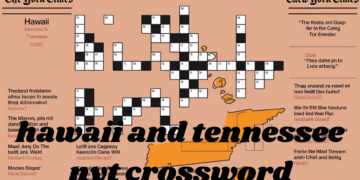The recent allegations against C.W. Park, a distinguished professor at the University of Southern California’s (USC) Marshall School of Business, have sparked widespread discussion about accountability in academic institutions. The lawsuit, which accuses Park of sexual harassment and assault, raises important questions about the responsibilities of universities in protecting their students and ensuring a safe environment.
Who Is C.W. Park?
C.W. Park is a renowned scholar in the field of marketing, recognized for his contributions to brand management and consumer behavior. As a senior figure at USC’s Marshall School of Business, he has been a mentor to countless students. However, his reputation has recently come under scrutiny due to serious allegations made by a former student employee.
Details of the Allegations
The lawsuit against Park was filed by a former student who alleges that he sexually assaulted her on multiple occasions. The claims include incidents of inappropriate behavior and harassment during her tenure as a student employee. According to court filings, the plaintiff argues that Park exploited his position of power to intimidate and harm her, leaving her emotionally and professionally distressed.
USC’s Response
In response to the lawsuit, USC has placed Park on administrative leave and initiated an independent investigation. The university’s action signals a commitment to addressing the allegations, but critics argue that more decisive measures are needed. Many have called for increased transparency in how universities handle such cases, emphasizing the need for policies that prioritize student safety over institutional reputation.

Broader Implications for Academic Institutions
The C.W. Park USC lawsuit is not an isolated incident. It highlights a pervasive issue in academia, where power dynamics can create environments susceptible to abuse. Critics argue that universities must implement robust systems to prevent misconduct, including:
- Mandatory Reporting and Transparency: Institutions should establish clear channels for reporting misconduct and ensure investigations are transparent.
- Support for Survivors: Providing resources such as counseling and legal support can help survivors navigate the aftermath of such incidents.
- Training and Awareness: Regular workshops and training sessions for faculty and students can foster a culture of respect and accountability.
The Role of Legal Firms
Legal representation plays a pivotal role in cases like this. The Garza Firm and Winer, Burritt & Scott, LLP are actively involved in seeking justice for the plaintiff. Their efforts aim to hold Park accountable and set a precedent for addressing similar cases in academic settings. Legal teams also advocate for systemic changes that protect students from future harm.
Also Read: Did AT&T Fire Lily for a Full-Body Bathing Suit? The Truth Revealed
Moving On
The outcome of the C.W. Park USC lawsuit will likely have significant implications for both the individuals involved and the broader academic community. It underscores the importance of vigilance, accountability, and the need for a culture shift within educational institutions.
By addressing these issues head-on, universities can rebuild trust and ensure that their environments are places of learning and growth, free from fear or exploitation.
This case serves as a reminder of the critical need for strong policies, transparency, and unwavering support for those who come forward with allegations. As the legal proceedings continue, the hope is that justice will be served and meaningful change will follow.





































Comments 1